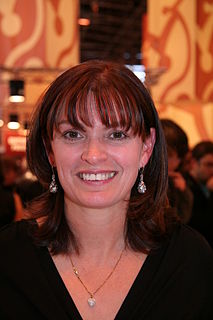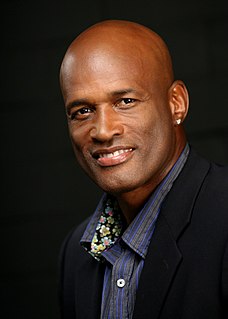A Quote by Lev Grossman
Maybe there's a sense that technology isn't necessarily the answer to a lot of our problems. Fantasy offers readers a less radically alienated world - a world where desires and feelings that normally are trapped inside your mind are made real in the form of magic.
Related Quotes
A lot of people feel like urban fantasy is a shortcut that gets you around world-building, because it's set "in the real world." But it doesn't really work that way, as I found out. You have to come up with just as consistent an internal cosmology and magic system as you would if you were writing high fantasy.
The world did not have me in mind; it had no mind. It was a coincidental collection of things and people, of items, an I myself was one such item...the things in the world did not necessarily cause my overwhelming feelings; the feelings were inside me, beneath my skin, behind my ribs, withing my skull. They were even, to some extent, under my control.
What really happens is that the story-maker proves a successful 'sub-creator'. He makes a Secondary World which your mind can enter. Inside it, what he relates is 'true': it accords with the laws of that world. You therefore believe it, while you are, as it were, inside. The moment disbelief arises, the spell is broken; the magic, or rather art, has failed. You are then out in the Primary World again, looking at the little abortive Secondary World from outside.
Fantasy is more than an escape from the truths of the world and the past: it is an open acknowledgment that those truths are complex and morally difficult. It offers a different route to creating something which will resonate with readers, in a way which resists the erasure of privacy and autonomy which pervades our modern world.
Phonogram was explicitly about our world. It’s a fantasy which is happening around us all, unnoticed except for those who’ve fallen into its world. In a real way, it’s real. Conversely, W+D is much more overt. The appearance of the gods changes the world, and has changed the world going back. There’s the strong implication that certain figures in our world simply didn’t exist in The Wicked And The Divine‘s world, because they were replaced by a god.
Ultimately, all I wanted was for players to feel like they were in the real world. I wanted them to be able to apply real world common sense to the problems confronting them, and I thought recreating real world locations would encourage that kind of thinking. There's also just a real power, a real thrill, when you fire up a game and see a place you've been or want to go, and then get to do all the stuff you WANT to do there but know you'll get arrested if you try! If that isn't the stuff of fantasy - far more than exploring some goofy dwarven mine or alien spaceship - I don't know what is!
It is easy to imagine fantasy as physical and myth as real. We do it almost every moment. We do this as we dream, as we think, and as we cope with the world about us. But these worlds of fantasy that we form into the solid things around us are the source of our discontent. They inspire our search to find ourselves.
The world cannot hold onto you, for the world is not sentient. The world doesn't have a mind nor does it have desires; it is only your mind's objectivisation. It is your own mind's play which imagines that an object-call it the mind or whatever-can hold onto you. It is the idea you have of who you are that is holding onto its own fearful projections as the mind. Leave all of this and remain as the pure, joyous Self.
You are not in the world...the world is in you," what did he mean? [That is, you are not in the world," that is, there is no "you" that is real or in any world. "The world is in you" means that the world is in your "mind" and is nothing more than a figment of your programming-and-conditioning-induced imaginings.]







































